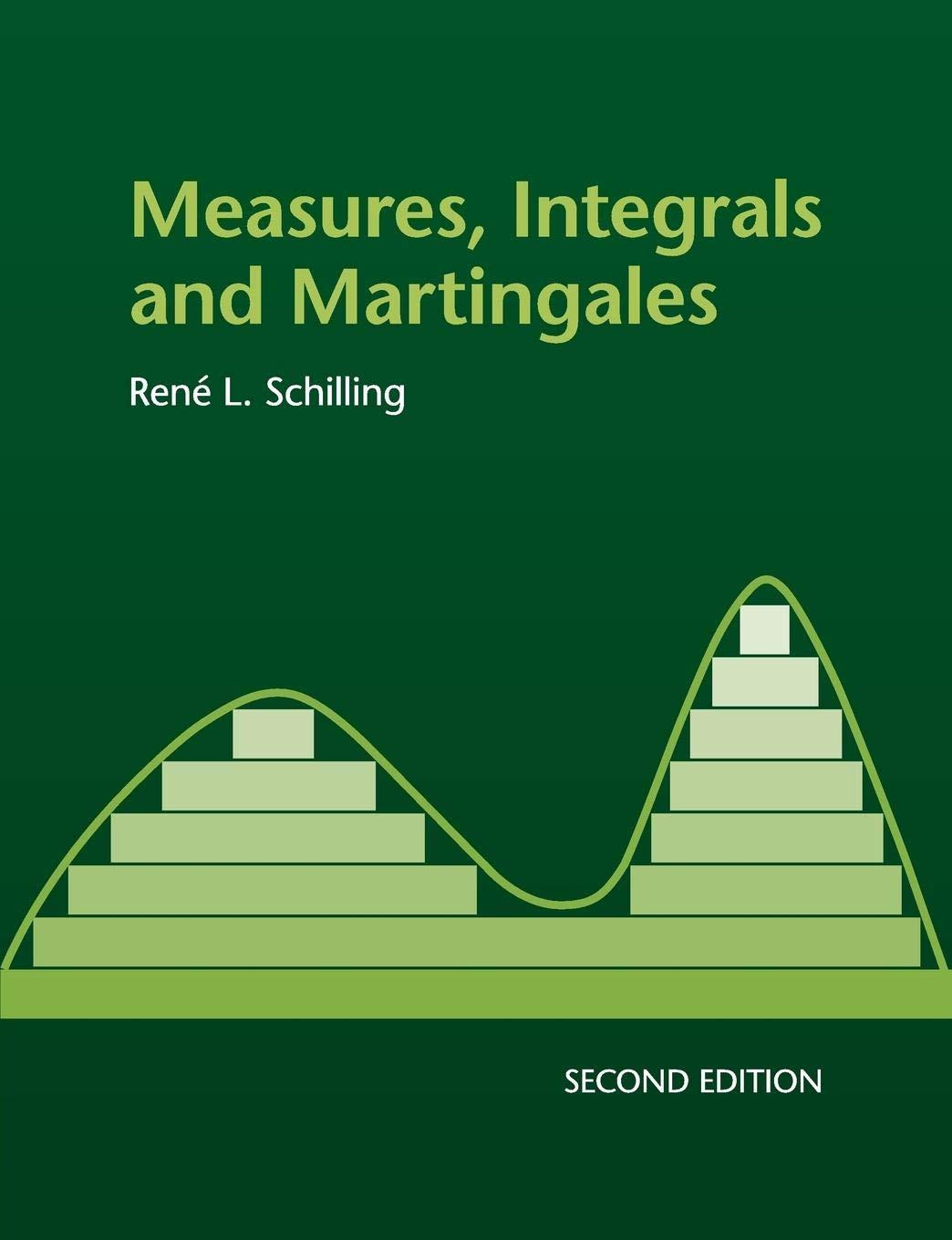Let (mu, u) be two (sigma)-finite measures on (left(mathbb{R}^{n}, mathscr{B}left(mathbb{R}^{n}ight)ight.) ). Show that (mu star u) has
Question:
Let \(\mu, u\) be two \(\sigma\)-finite measures on \(\left(\mathbb{R}^{n}, \mathscr{B}\left(\mathbb{R}^{n}ight)ight.\) ). Show that \(\mu \star u\) has no atoms (see Problem 6.8) if \(\mu\) has no atoms.
Data from problem 6.8
Let \((X, \mathscr{A}, \mu)\) be a measure space such that all singletons \(\{x\} \in \mathscr{A}\). A point \(x\) is called an atom, if \(\mu\{x\}>0\). A measure is called non-atomic or diffuse, if there are no atoms.
(i) Show that the one-dimensional Lebesgue measure \(\lambda^{1}\) is diffuse.
(ii) Give an example of a non-diffuse measure on \((\mathbb{R}, \mathscr{B}(\mathbb{R}))\).
(iii) Show that for a diffuse measure \(\mu\) on \((X, \mathscr{A})\) all countable sets are null sets.
(iv) Show that every probability measure \(\mathbb{P}\) on \((\mathbb{R}, \mathscr{B}(\mathbb{R}))\) can be decomposed into a sum of two measures \(\mu+u\), where \(\mu\) is diffuse and \(u\) is a measure of the form \(u=\sum_{i \in \mathbb{N}} \epsilon_{i} \delta_{x_{i}}, \epsilon_{i}>0, x_{i} \in \mathbb{R}\).
\(\left[ight.\) since \(\mathbb{P}(\mathbb{R})=1\), there are at most \(k\) points \(y_{1}^{(k)}, y_{2}^{(k)}, \ldots, y_{k}^{(k)}\) such that \(\frac{1}{k-1}>\) \(P\left\{y_{i}^{(k)}ight\} \geqslant \frac{1}{k}\). Find by recursion (in \(k\) ) all points satisfying such a relation. There are at most countably many of these \(y_{i}^{(k)}\). Relabel them as \(x_{1}, x_{2}, \ldots\). These are the atoms of \(\mathbb{P}\). Now take \(\epsilon_{i}=\mathbb{P}\left\{y_{i}ight\}\), define \(u\) as stated and prove that \(u\) and \(\mathbb{P}-u\) are measures.]
Step by Step Answer:






